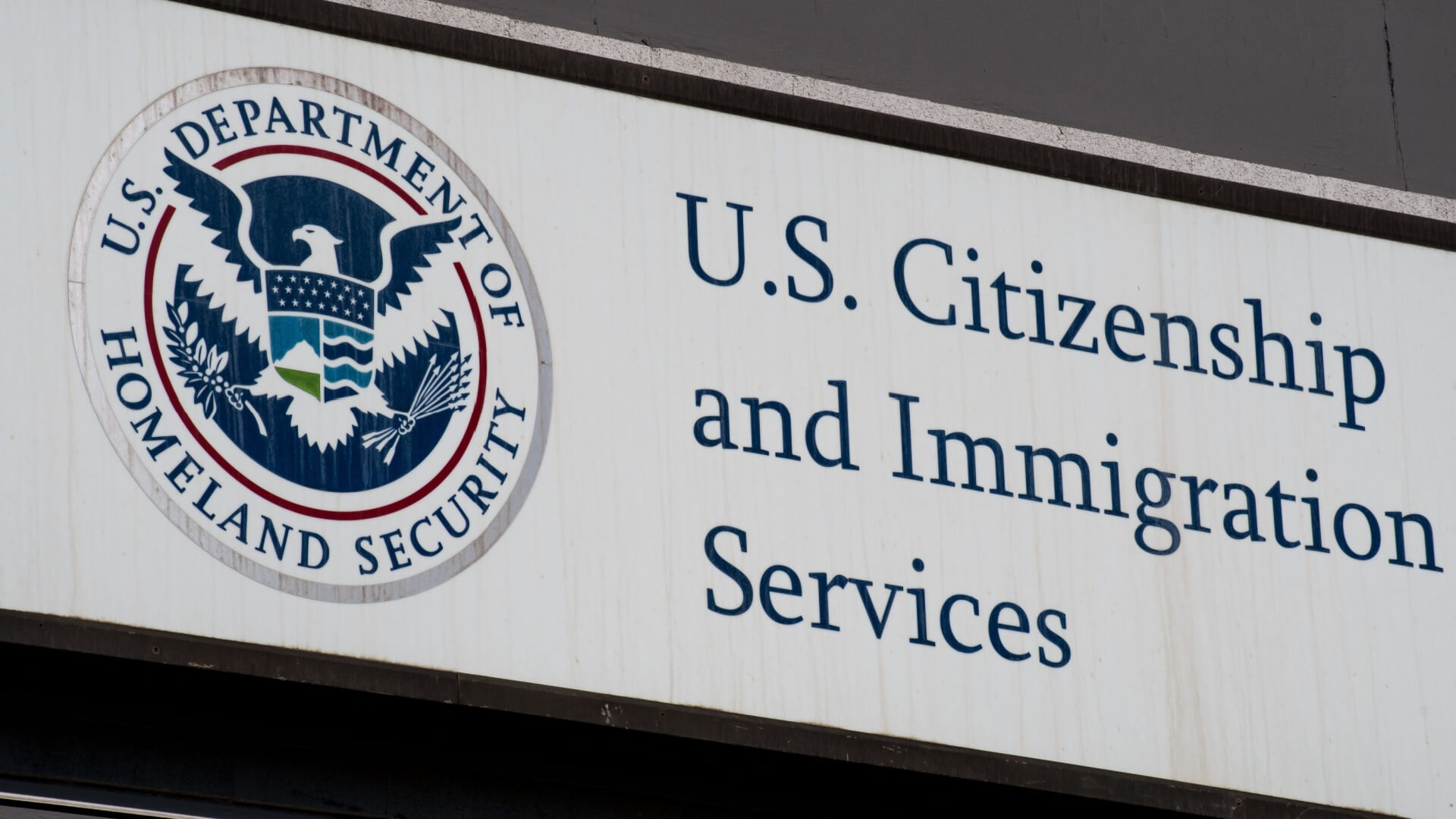USCIS Increases Immigration Enforcement Authorities With Special Agent Positions
USCIS Gains New Immigration Enforcement Authorities
The landscape of U.S. immigration enforcement has shifted dramatically with a new final rule that expands the U.S. Citizenship and Immigration Services‘ (USCIS) law enforcement capabilities. This historic change grants USCIS unprecedented authority to investigate, arrest, and prosecute immigration law violations through newly established special agent positions.
For immigrants, legal professionals, and advocacy groups, understanding these expanded immigration enforcement authorities is crucial. The rule marks a significant departure from USCIS’s traditional role as a primarily adjudicative agency, transforming it into a more enforcement-focused organization with far-reaching implications for immigrant communities nationwide.
This expansion affects everyone navigating the immigration system — from those seeking citizenship to individuals facing removal proceedings. The changes demand immediate attention and careful consideration of how they may impact pending cases and future immigration strategies.
Background of USCIS Enforcement Expansion
The final rule, published with immediate implementation, represents the most significant expansion of USCIS enforcement powers in the agency’s history. Under this new authority, DHS has delegated substantial law enforcement capabilities to USCIS, fundamentally altering how immigration enforcement operates at the federal level.
DHS Secretary Kristi Noem’s delegation of these authorities stems from three primary objectives: strengthening national security, enhancing fraud detection capabilities, and improving public safety measures related to immigration adjudications. The rule addresses growing concerns about immigration fraud and the need for more efficient processing of cases involving criminal violations.
Previously, USCIS relied heavily on referrals to other agencies when enforcement issues arose during adjudication processes. This new framework eliminates many of these referral requirements, allowing USCIS to handle investigations from initiation to conclusion. The change is designed to create a more streamlined enforcement system while freeing up resources within Immigration and Customs Enforcement (ICE) to focus on transnational crime and deportation operations.
Details of the New Special Agent Positions
The cornerstone of this enforcement expansion lies in the creation of USCIS 1811 classified officers, commonly known as special agents. These positions carry the same classification as federal law enforcement officers in other agencies, granting them extensive investigative and enforcement powers.
Special agent positions within USCIS now include the authority to:
- Investigate criminal and civil violations of immigration law within USCIS jurisdiction
- Make arrests without a warrant when probable cause exists
- Execute search and arrest warrants issued by federal courts
- Carry firearms in accordance with federal law enforcement standards
- Present cases for prosecution to federal attorneys
- Order expedited removal proceedings when appropriate
These agents will operate under the direct authority of the USCIS Director and will be fully integrated with existing federal law enforcement networks, including participation in Joint Terrorism Task Force operations. The special agents will undergo comprehensive training similar to other federal law enforcement officers, ensuring they meet established standards for investigation, arrest procedures, and firearms proficiency.
The integration with other law enforcement agencies creates a force multiplier effect, as USCIS Director Joseph B. Edlow noted. This coordination allows for more comprehensive investigations and faster resolution of cases involving immigration violations.
Potential Impact on Immigrant Communities
The expansion of USCIS enforcement authorities raises significant concerns within immigrant communities, particularly among vulnerable populations who may already face heightened scrutiny under current immigration policies.
Undocumented immigrants now face increased risk of detection and arrest during routine interactions with USCIS that were previously considered administrative in nature. What was once a straightforward application review could potentially trigger an enforcement action if special agents identify violations or indicators of fraud.
Asylum seekers represent another group facing heightened uncertainty. The new authorities allow USCIS to investigate and potentially prosecute cases involving asylum fraud more aggressively, which may create additional barriers for legitimate asylum seekers who fear their cases will be scrutinized through an enforcement lens rather than a humanitarian one.
Even lawful permanent residents and naturalization applicants should understand that USCIS special agents can now investigate any suspected violations that surface during the application process. This includes historical violations that might not have triggered enforcement actions under previous protocols.
The psychological impact on immigrant communities cannot be understated. The knowledge that USCIS officers now carry arrest authority may discourage some individuals from seeking immigration benefits or reporting crimes, potentially undermining community safety and trust in government institutions.
Legal and Ethical Considerations
The legal foundation for expanding USCIS enforcement authorities rests on existing DHS statutory powers that can be delegated to component agencies. However, legal professionals raise questions about the scope of these new powers and the potential for overreach.
The rule establishes USCIS as both an adjudicative and enforcement agency, creating potential conflicts of interest when the same organization that reviews applications also investigates and arrests applicants. This dual role challenges the traditional separation of functions that existed when enforcement was primarily handled by separate agencies like ICE.
Oversight mechanisms become crucial under this new framework. Congressional oversight committees, the DHS Office of Inspector General, and civil rights organizations will need to monitor how these new authorities are exercised to prevent abuse and ensure constitutional protections remain intact.
Due process concerns arise when considering how these expanded powers might affect pending cases. Applicants have the right to know when they are subjects of investigation and to understand how enforcement actions might impact their immigration status or ongoing proceedings.
The accountability structure for USCIS special agents must align with other federal law enforcement agencies, including reporting requirements for use-of-force incidents, investigation outcomes, and arrest statistics. Transparency in these areas will be essential for maintaining public trust and ensuring fair enforcement practices.
How Alvelo Immigration Legal Solutions Can Help
Facing immigration court proceedings has become increasingly complex with these new enforcement authorities in place. At Alvelo Immigration Legal Solutions, PLLC, we understand the heightened stakes and evolving challenges that immigrants face in this new enforcement environment.
Our legal team provides comprehensive representation for individuals navigating removal proceedings, asylum cases, and other immigration matters that may now intersect with USCIS enforcement actions. We stay current with the latest developments in immigration enforcement to ensure our clients receive informed guidance based on the most recent policy changes.
We recognize that the expansion of USCIS enforcement authorities creates additional stress and uncertainty for immigrant families. Our approach combines legal skill with compassionate support, helping clients understand their rights and options while developing strategic defenses tailored to their specific circumstances.
Our services include defense against removal proceedings, assistance with asylum claims, appeals of adverse decisions, and guidance for individuals who may be subject to USCIS investigations. We also provide counsel on how the new enforcement authorities might affect pending applications or future immigration strategies.
Protecting Your Rights in a Changing Enforcement Landscape
If you or a loved one is facing immigration court proceedings or concerns about potential enforcement actions, seeking skilled legal counsel has never been more important. The stakes are higher, the processes more complex, and the need for knowledgeable representation greater than ever before.
Contact Alvelo Immigration Legal Solutions, PLLC, today to discuss your case and develop strategies to protect your future in this evolving enforcement environment. You are not alone in navigating these challenges — professional legal support can make the difference between successful resolution and devastating consequences.
 Payment through LawPay
Payment through LawPay 
